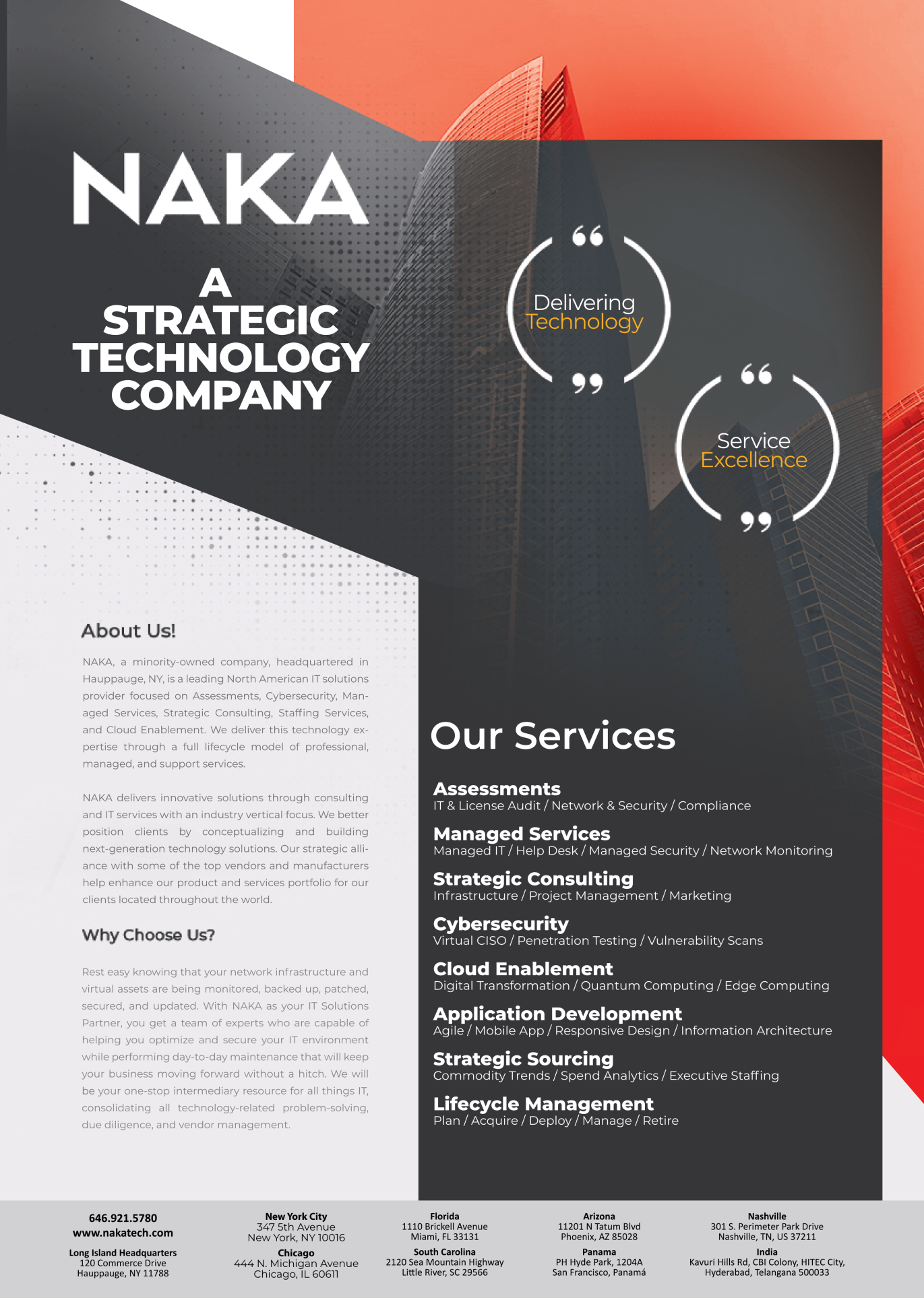Strategic Partnerships: How Managed IT Aligns with Business Objectives

Strategic Partnerships: How Managed IT Aligns with Business Objectives
Introduction
Achieving and retaining a competitive edge in the fast-paced business climate of today necessitates strategic alliances that smoothly mesh with larger organizational goals. A crucial partnership that has demonstrated revolutionary effects is the cooperation between companies and Managed IT service providers. We will examine the mutually beneficial relationship between Managed IT and business objectives in this blog post, as well as how this strategic partnership may lead to unmatched success.
Understanding Managed IT: A Cornerstone for Modern Businesses
The complex network of technologies that underpins a firm is handled by a variety of outsourced solutions that are included in managed IT services. Managed IT services give a complete solution, covering everything from cloud computing and IT support to network security and data management. Leaving the complexities of technology to the professionals, enables firms to concentrate on their core skills.
Key Features of Managed IT Services:
-
Proactive IT Management
Proactive maintenance and monitoring of an organization’s IT infrastructure are part of managed IT services. A managed service provider (MSP) actively monitors systems, seeing any problems and resolving them before they influence operations, as opposed to waiting for problems to happen. A smoother and more productive work environment is ensured by this proactive strategy, which reduces downtime.
-
Data Security and Compliance
Any organization’s main priority should be security, and managed IT services are excellent at protecting critical data. MSPs put strong security measures in place to guard against online attacks and guarantee the confidentiality and integrity of data. Additionally, they are essential in ensuring that companies adhere to industry-specific rules and guidelines, reducing the possibility of negative legal and financial outcomes.
-
Scalability and Flexibility
IT solutions that can adjust to changing needs are necessary due to the dynamic nature of the company. Scalability and flexibility are provided by managed IT services, enabling companies to modify their IT setups as needed. Whether expanding to accommodate heightened needs or contracting during slower times, managed services offer the flexibility required to match IT assets to the present business environment.
-
24/7 Support
The availability of round-the-clock support is one of the qualities that sets managed services apart. Companies run around the clock, and IT problems can happen at any time. MSPs minimize downtime and enable continued business operations by providing clients with rapid help around the clock. This continuous availability makes the IT infrastructure more responsive and resilient.
-
Focus on Core Competencies
IT management can be outsourced to a professional vendor, freeing up internal personnel to focus on core skills. Employees can focus their energies on strategic initiatives and projects that directly support the expansion of the firm by delegating the complexity of IT chores to other parties. The organization’s total productivity and innovation are improved by this focus on key capabilities.
-
Enhanced Customer Experience
An efficient and safe technology infrastructure directly enhances the client experience. By upholding a stable and secure IT environment, managed IT services guarantee that companies can provide dependable services to their clients. Uninterrupted services naturally lead to higher customer satisfaction, which promotes loyalty and a favorable company image.
Aligning Managed IT with Business Objectives
1. Enhanced Operational Efficiency
- Streamlined Processes:
Managed IT services contribute to the streamlining of IT processes, ensuring that technology operates seamlessly within the organization.
- Reduced Downtime:
By proactively monitoring and managing IT systems, Managed IT services minimize downtime, ensuring uninterrupted business operations and enhancing overall efficiency.
2. Cost Optimization:
- Predictable Expenses:
Adopting Managed IT services introduces a subscription-based model, providing businesses with predictable and manageable IT expenses.
- Minimized Capital Expenditure:
Organizations can reduce capital expenditure on IT infrastructure by leveraging the expertise and resources of Managed IT service providers.
3. Focus on Core Competencies:
- Task Delegation:
Managed IT services allow internal teams to delegate IT management tasks to external experts, enabling them to concentrate on core competencies and strategic business goals.
- Efficient Resource Utilization:
By offloading IT responsibilities, organizations can optimize resource allocation for tasks that directly contribute to their core functions.
4. Strategic Planning and Future-Proofing:
- Collaborative Strategy Development:
Managed IT services collaborate with businesses to develop IT strategies that align with long-term objectives, ensuring technology supports organizational growth.
- Scalable Solutions:
Implementation of scalable IT solutions allows organizations to adapt to evolving business needs, fostering future-proofing against technological obsolescence.
5. Cybersecurity Resilience:
- Robust Security Measures:
Managed IT services implement robust security measures to protect organizations against evolving cyber threats, safeguarding sensitive data and ensuring business continuity.
- Proactive Monitoring:
Continuous monitoring and prompt response to potential security breaches contribute to maintaining cybersecurity resilience.
6. Enhanced Customer Experience:
- Reliable Technology Infrastructure:
Managed IT services ensure a reliable and secure technology infrastructure, positively impacting customer interactions.
- Increased Satisfaction:
Uninterrupted services resulting from robust IT support enhance customer satisfaction and contribute to the overall customer experience.
Conclusion
Strategic alliances are essential for success in the ever-changing world of modern business. Businesses may take advantage of technology’s capabilities without dealing with its inherent complications by partnering with a Managed IT service provider. The advantages of managed IT are numerous and range from improved operational effectiveness to strengthened cybersecurity, making it an essential partner in accomplishing and exceeding business goals.
In summary, it is vital to integrate Managed IT services strategically into your company architecture; it is not merely a choice. Innovation, resiliency, and steady growth will surely be fueled by the synergy between managed IT and business objectives as companies navigate the digital age. Choose your partners carefully, look forward to the future, and see your business goals come to pass.



